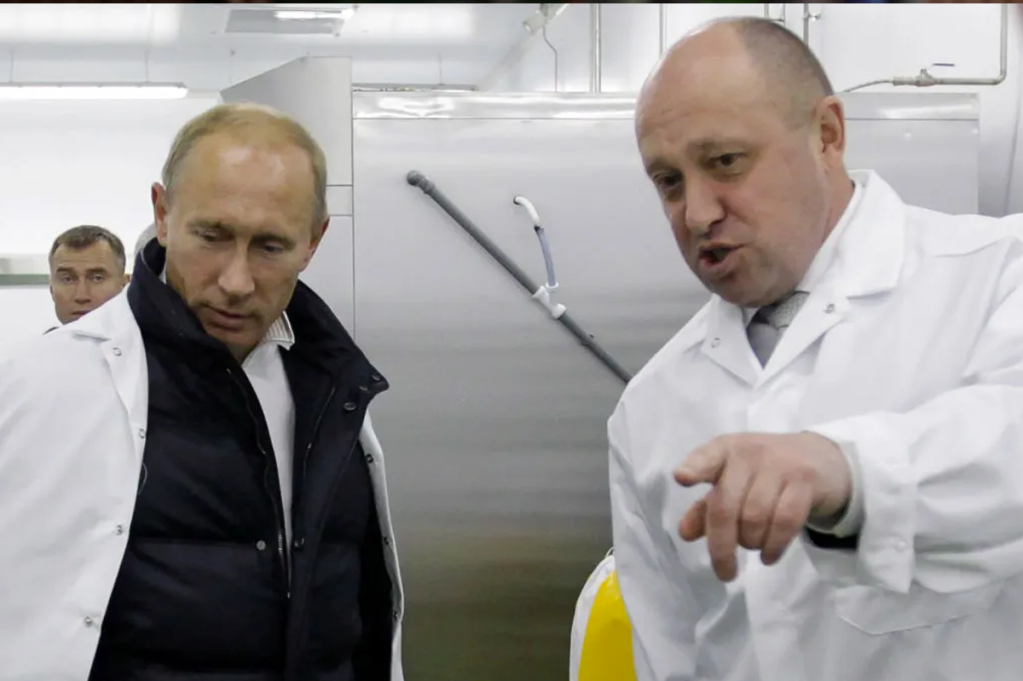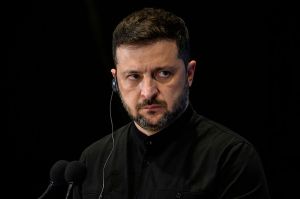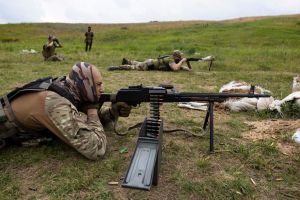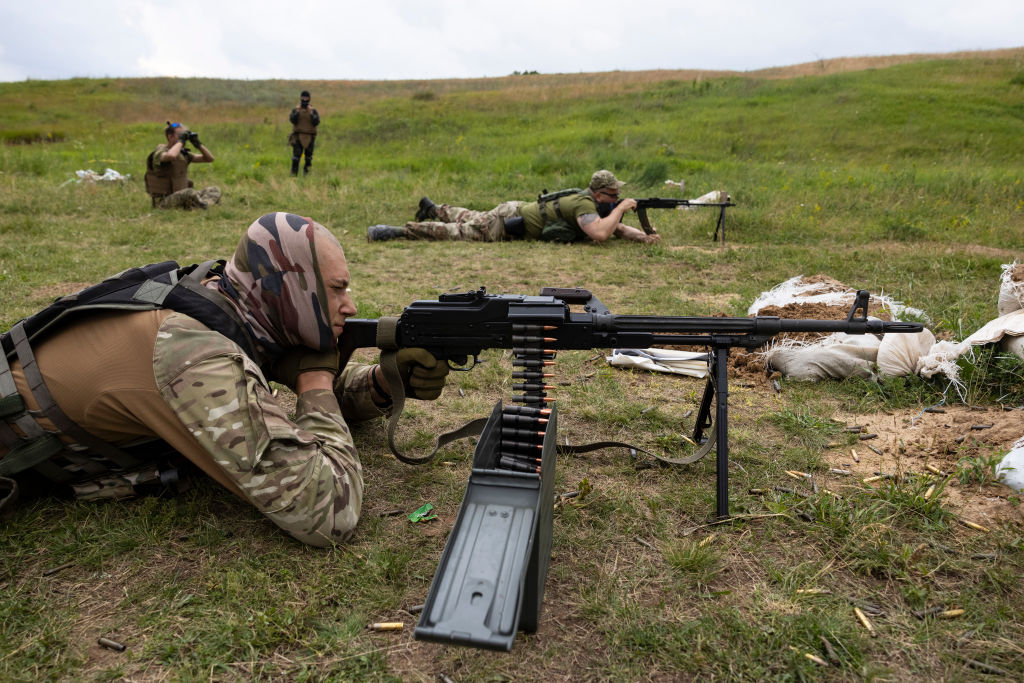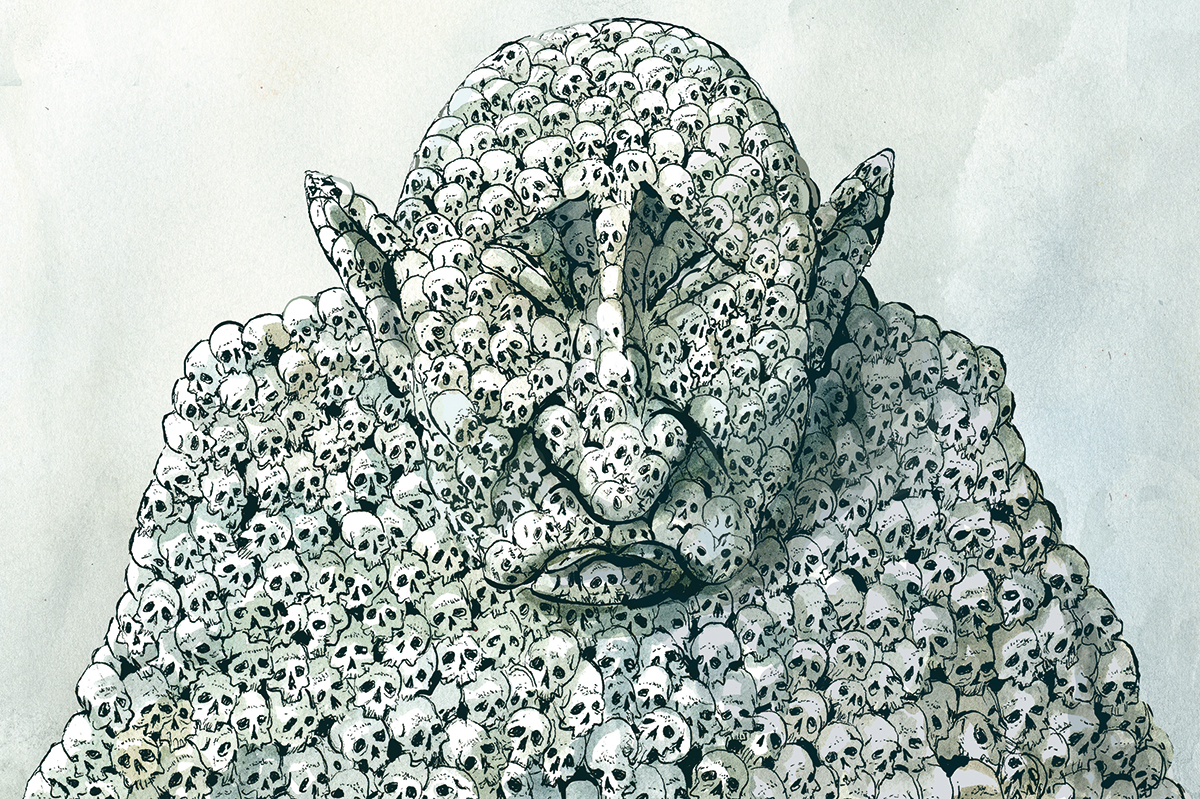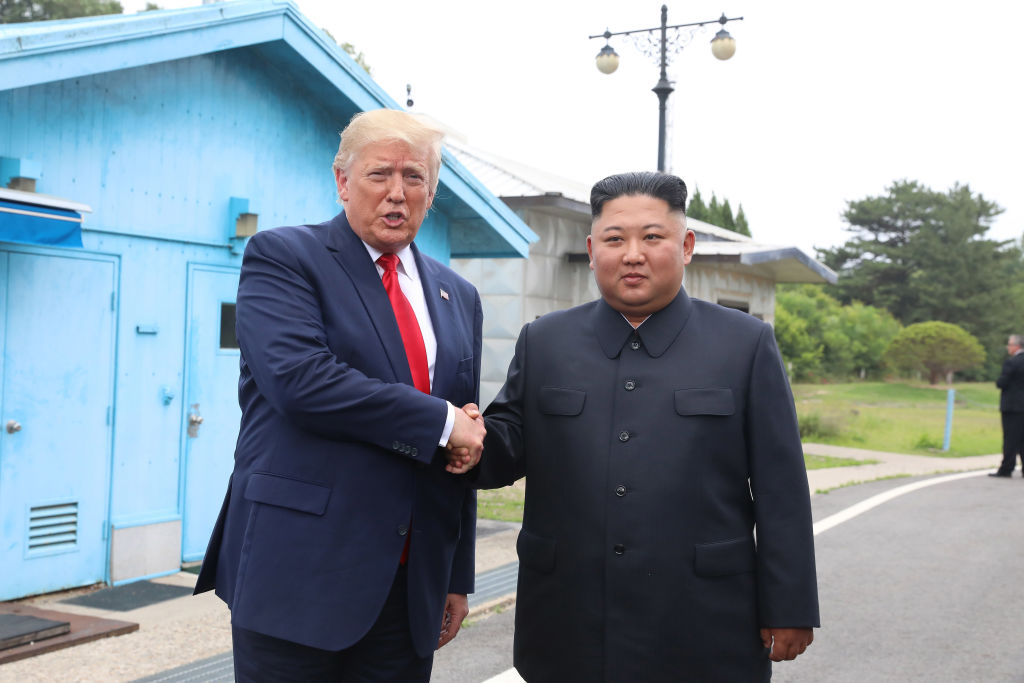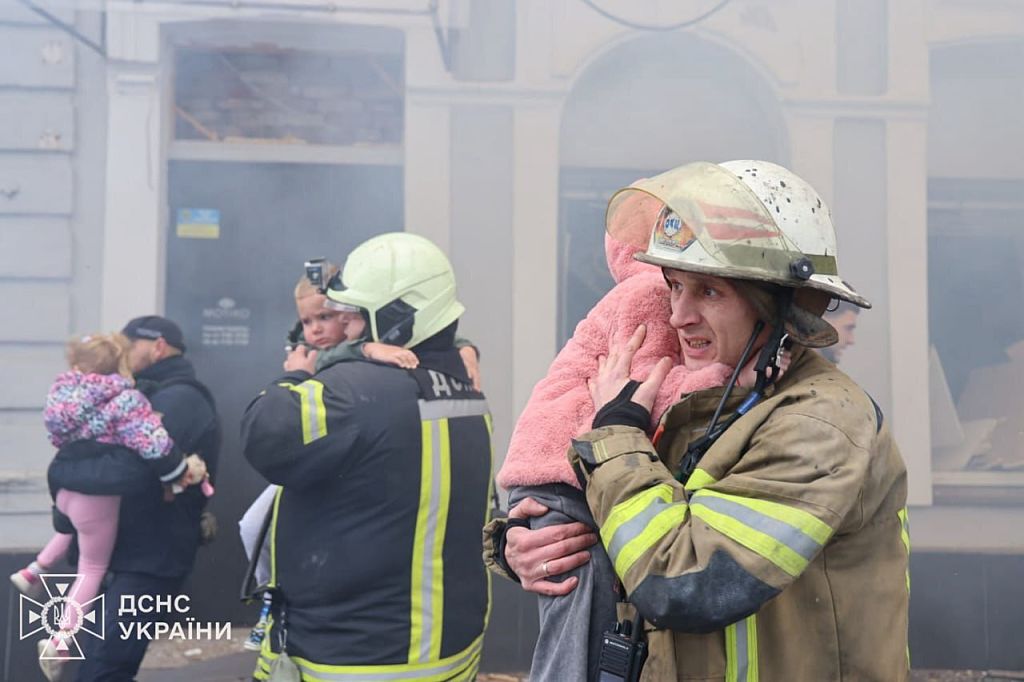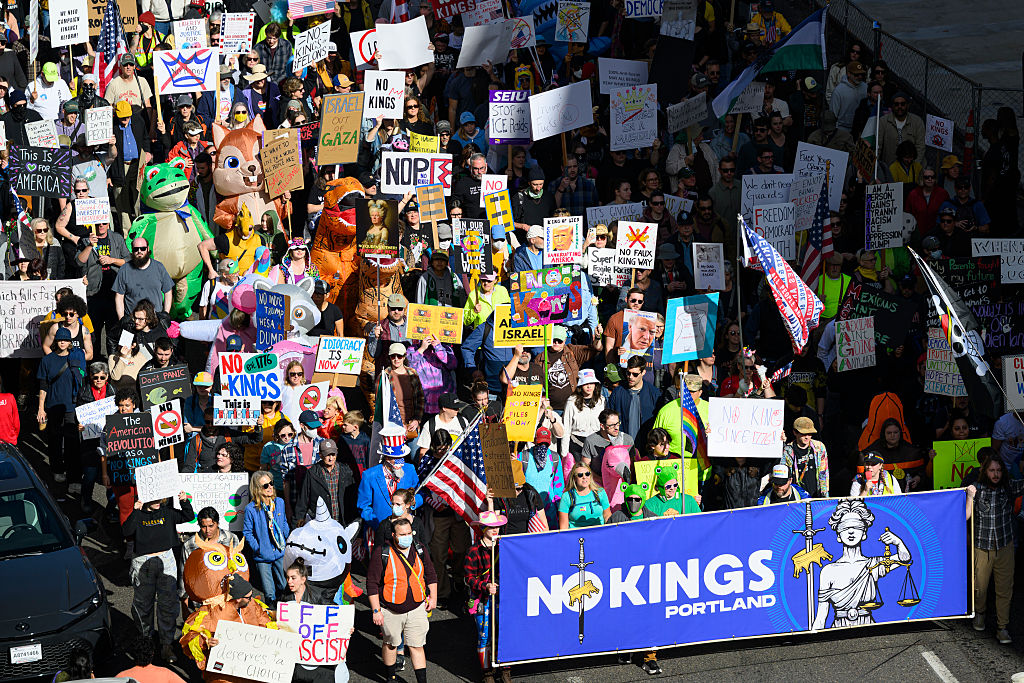In the absence of facts, it’s hard to understand what got into Yevgeny Prigozhin. I spoke to the former oligarch Mikhail Khodorkovsky about Prigozhin and Putin and their odd relationship. He says that criminality unites and explains the pair.
Prigozhin went to prison for almost ten years, for robbery. The legend is that he opened the first hotdog stand in Leningrad (now St. Petersburg) and then moved on to luxury restaurants. Khodorkovsky says Prigozhin must have remained deeply connected to the underworld to succeed in the restaurant business in the St. Petersburg of the 1990s. And he says Putin was the intermediary between the state security agencies and the city’s “mafiya.”
“Putin is a bandit. He’s a gangster. In the early years, he worked in organizations that were above the law or beyond it, like the KGB. Then he became the president… and he really started disregarding law completely. The appearance of Prigozhin in this situation is absolutely logical.”
There is a famous photograph of Prigozhin presenting Putin with a fussy-looking main course. The perfect touch is Putin’s expression, a Mafia-don pout of approval. Prigozhin earning the nickname “Putin’s chef” demonstrated that he occupied a position of absolute trust: Russian leaders have a traditional fear of being poisoned. It allowed him to go on to run the Wagner Group and also the internet “troll farm” that tried to sway a US presidential election, and which still pumps out a slurry of propaganda. Could it be that the two men cooked up an elaborate hoax?
That is one of several theories that, even while probably mistaken, reveal some truths about Putin’s Russia. Rebekah Koffler, a former US intelligence officer who dealt with Russia, told Fox News the mutiny was a “classic false flag operation… classic Putin.” The idea was to get Western governments to go easy on Putin, because the alternative to him would be worse. This is hard to believe with both men left looking so weak, morale in the army at rock bottom and Ukrainians cheering the sight of Wagner shooting down Russian aircraft. But it might be true that Prigozhin is a kind of licensed critic of the regime, someone to make Putin look good by comparison.
Another theory is that Prigozhin thought others would join his coup. This is the view of someone who was a senior figure in one of Russia’s most feared mafia groups. Let’s call him “Lev.” Lev is retired and making up for his past by doing good works in his village (he’s even become rabbi of the local synagogue, where they don’t know his history). He suspects that Nikolai Patrushev, one of the most powerful figures in the Kremlin, told Prigozhin to expect help from the FSB, the new KGB. But Patrushev just wanted to get rid of a rival by provoking Prigozhin into doing something rash. No evidence for this has emerged, though Putin must wonder about some of his most senior lieutenants given how few took sides during the crucial hours.
Prigozhin is not a stupid man and must have known how little chance he had of success. Another theory is that he was pushed into a corner by his rivals in the army and had no choice. The army — backed by Putin — gave Wagner’s contractors just a few weeks to sign contracts with Russia’s MoD, something that might have been the end of Prigozhin. The trouble with this theory is that any deal to preserve Wagner would be worth nothing: Prigozhin and his mercenaries were always sub-contractors for the Kremlin.
We don’t know the terms of the deal between Putin and Prigozhin. Realizing he was about to be forced out of the mercenary business, did Prigozhin extort Putin? One more big score before retirement? Prigozhin must know from The Godfather that betrayal normally ends with a garrote, or in this case a dish served with polonium-210. At the weekend, both men seemed to leave themselves no room for anything less than a fight to the finish. But if — as Khodorkovsky says — we understand them primarily as criminals, maybe the boss simply bought off his capo. In Putin’s Russia, anything is possible.
This article was originally published in The Spectator’s UK magazine. Subscribe to the World edition here.



